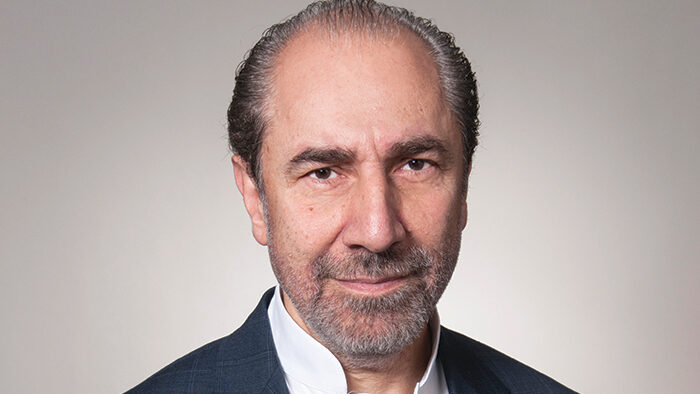Garo Armen, PhD, a philanthropist and biotech leader, made the following address during the Second Global OncoThon:
“Good evening, everyone. I’m Garo Armen, Founder of the Children of Armenia Fund and Agenus. Tonight, I’d like to speak to you not with the usual platitudes, but with a sense of urgency and sometimes uncomfortable truth—because when it comes to saving children’s lives, there’s no room for polite restraint.
- The Cruel Cost of Inaction
Let me begin with a deeply personal tragedy. A dear friend lost his three-year-old son to a brain tumor. They knew with certainty there was no approved cure, and his doctors recognized a dire need for an experimental intervention—anything that might offer a glimmer of hope. But in the end, the red tape was too thick, the regulatory barriers too high, and access to cutting-edge therapies too elusive. That child was robbed of a chance for life simply because our system prioritizes caution over urgent innovation.
I ask you: Is this truly the best we can do for our children?
- Stifling Innovation in Real Time
Fast forward to more recent events. A father approached my company, Agenus, desperate to secure access to a product we’re developing—one that, while still experimental, had shown enough promise to justify compassionate use. Yet despite the father’s plea and the doctor’s willingness, no specialist felt comfortable navigating the minefield of IRB rules and regulatory approvals. Fear of bureaucracy and professional repercussions overrode the moral imperative to try something that could extend or improve this child’s life.
And this wasn’t an isolated case. Six months ago, a major cancer center reached out, begging us to provide one of our agents, BOT/BAL, to four pediatric patients—ages 8 to 14—who were battling metastatic colon cancer. Again, internal gatekeepers, some of them ex-FDA advisors, warned us that helping these children might hamper the “purity” of our trial data. Think about that for a moment: we let data purity trump a real chance at saving children’s lives. That’s the world we live in.
- Misplaced Caution and the Rise of Global Competition
Let’s be frank: the FDA and EMA have built a framework that demands rigorous data for single-agent trials, one slow step at a time, ignoring the obvious fact that combination therapies often hold the key—especially for complex cancers. It’s an asinine concept that insists every new combination pass through endless phases before even a single child can benefit.
Meanwhile, countries like China are pulling ahead by fast-tracking multi-agent protocols and real-time data analysis. They’re showing the world that breakthroughs can happen quickly when you allow doctors, scientists, and biotech companies to respond dynamically to new evidence. We’re at risk of being left behind—not because we lack the science or the will, but because we’re strangled by self-imposed red tape.
- Putting Patients First—Not Politics or Protocol
I’m calling on the entire medical community—physicians, researchers, regulators, and industry leaders—to serve the patient, not your comfort zone. We cannot let professional relationships or fear of stepping outside established norms prevent us from making bold, lifesaving decisions. That means:
Adaptive Approvals: Allowing physicians to combine promising agents without waiting on endless additional trial phases.
Real-Time Data Sharing: Using modern technology to capture, analyze, and update findings as they happen.
Compassionate Use Over Caution: If we know a child is terminal under current standards, why deny them an experimental option that might—even if minimally—offer hope?
When a parent or physician says, “We’re out of time—please help,” the knee-jerk response shouldn’t be, “We can’t risk the trial protocol,” or “This might complicate regulatory paperwork.” It should be: “How do we safely make this happen, now?”
- Funding for Action and Mindset Shifts
Yes, we’re here tonight to raise critical funds. Money fuels the research, powers clinical trials, and expands access. But funding alone isn’t enough. If we keep funneling dollars into a system paralyzed by regulations and outdated thinking, we’re merely throwing resources into a black hole. We must also change our way of thinking so every dollar we raise can be used to drive progress with speed and agility.
- Final Plea to the Medical Community
To my colleagues in medicine, I say: Be bold. The status quo protects nobody when a three-year-old faces a deadly tumor. We must become the champions of children who have no other hope. That might mean challenging IRBs, bending outdated protocols, or pushing back against advisors who worry more about uniform patient populations than human lives. Will it sometimes be uncomfortable? Yes. Will it sometimes mean standing up to the FDA and EMA? Absolutely.
But we have an ethical duty to ensure no child dies waiting for a new therapy tangled in bureaucratic red tape. That’s the real reason we’re here—because children can’t wait.
Conclusion
In closing, let’s remember those we’ve already lost—like the three-year-old boy whose life ended before it truly began—and those currently fighting for a chance. Let tonight be more than a fundraising event. Let it be a turning point where we commit to harnessing our collective resources and courage to disrupt the old, paralyzing norms. Our children deserve nothing less.
Thank you, and let’s pledge to move forward—faster, braver, and more determined than ever before.”


